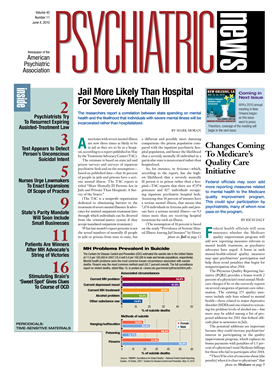Medicare fraud, which is estimated at $60 billion annually, is the target of new legislation that would strengthen criminal penalties and tighten oversight of contractors billing the federal health program. The new legislation is the latest in a series of recent federal initiatives to combat what is seen as a growing fraud problem in the massive program.
Innovative Approach Being Tried
The Medicare Fraud Enforcement and Prevention Act (HR 5044), introduced in April by Rep. Ron Klein (D-Fla.), would toughen criminal penalties and add new administrative tools to fight Medicare fraud. The legislation—the latest in a growing number of initiatives to crack down on increasing fraud in the program—takes the innovative approach of trying to stop such crimes before they occur. Most previous efforts have focused on recovering Medicare funds after they have been stolen.
The companion bill in the Senate is titled the Fighting Medicare Payment Fraud Act of 2009 (S 2774).
Federal officials uncovered $952 million in false Medicare claims in 2009, up from $703 million in 2008. The increase in fraud came despite the stepped-up efforts of the federal health care fraud task force, which has prosecuted more than 800 people and identified more than $2.5 billion in fraudulent claims since its start in 2006.
“The best way to save seniors and taxpayers money while keeping Medicare strong is to get tough on criminals and stop crimes before they start—and that is why our bill does both,” Klein said in a written statement.
Prevention Measures Included
Among the prevention measures in the bill are requirements for criminal background checks, fingerprinting, and random site visits of “high-risk” medical equipment suppliers and health care professionals before they receive any Medicare funding. Additionally, the bill would establish a five-year pilot program that tests the use of biometric technology among Medicare beneficiaries to ensure they are physically present for the services under which Medicare is billed. The approach would make physician participation voluntary.
The latter provision in the bill aims to crack down on a scam that has come to comprise the majority of fraud cases, in which criminals pay low-income seniors for their Medicare identification and use these numbers to file false claims for costly medications and “durable equipment,” such as wheelchairs.
Klein's legislation followed other high-profile attempts to address Medicare fraud, including the Senate bill introduced in November 2009 by Sen. Charles Grassley (R-Iowa) to give the federal government more time to pay Medicare providers when waste, fraud, or abuse is suspected. The measure would amend federal law to allow up to one-year delays on suspicious claims. Currently, claims are required to be paid in as little as two weeks from their filing date.
“Because of this prompt-payment rule, the government puts itself in a position of having to pay and chase Medicare fraud, instead of working to prevent it in the first place,” Grassley said in a written statement. “That doesn't make any sense.”
The legislation comes as the Obama administration is increasing its focus on health care fraud. The administration convened the first national summit on health care fraud between law enforcement officials and the private and public health care sectors in January. Obama also signed an executive order in March to expand the use of “payment recapture audits,” which examine payment records for signs of fraud.
The administration also has sought to nearly double antifraud enforcement funding to $1.7 billion over the next 10 years, and Kathleen Sebelius, secretary of Health and Human Services, said the effort should save $1.55 for every $1 spent on enforcement.
The text of the legislation can be accessed at <http://thomas.loc.gov> by searching on the bill numbers, HR 5044 and S 2774. 
